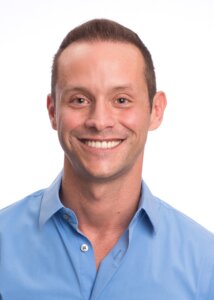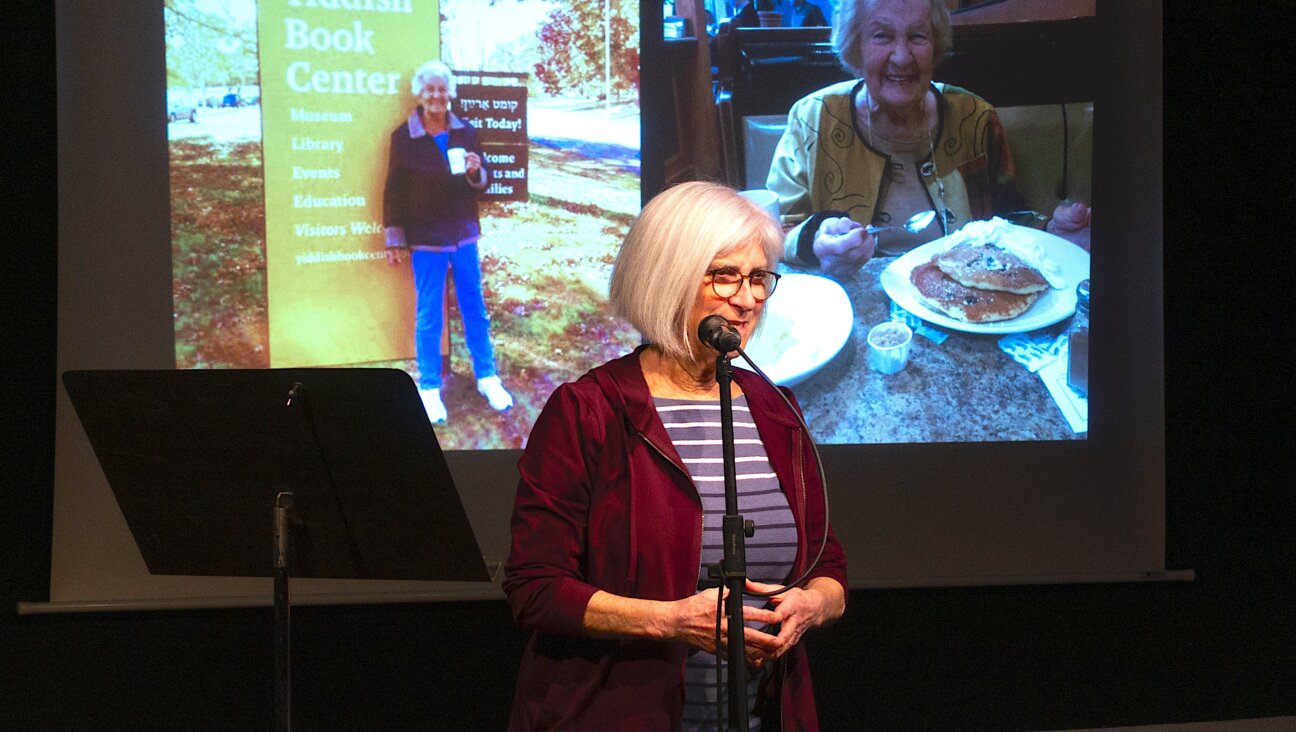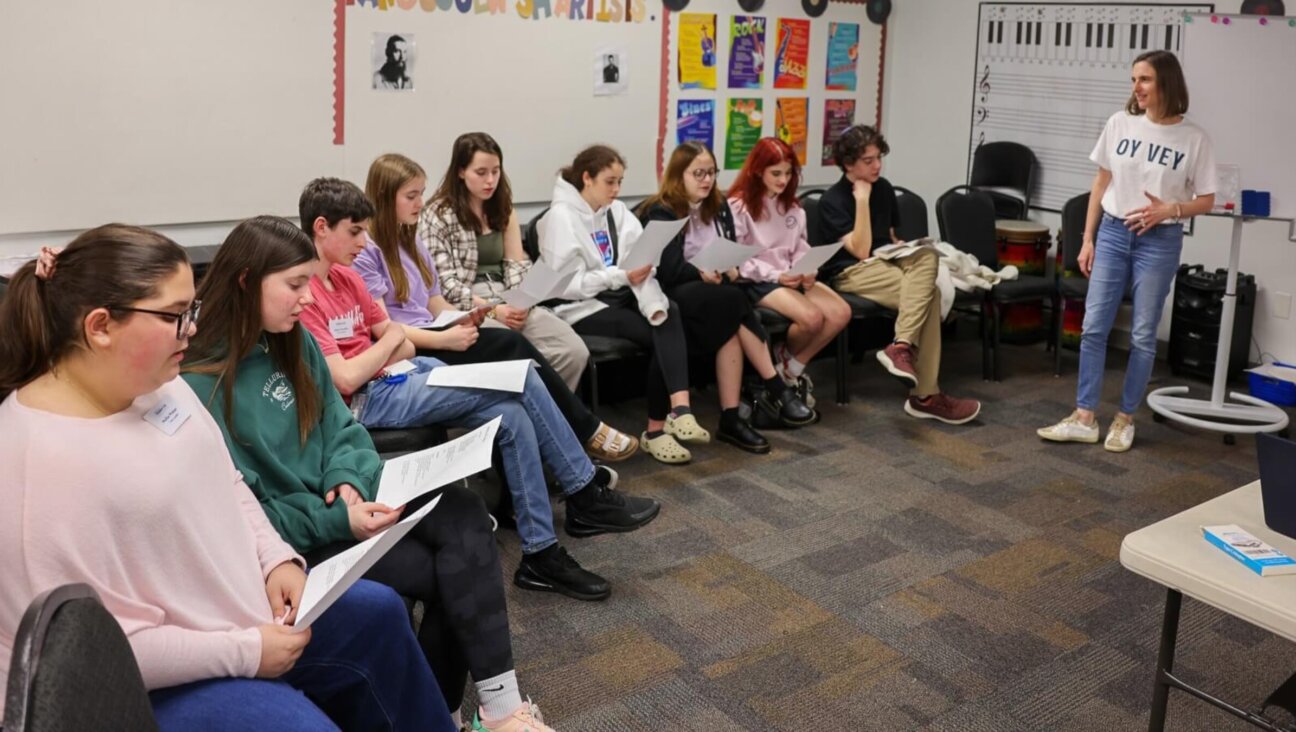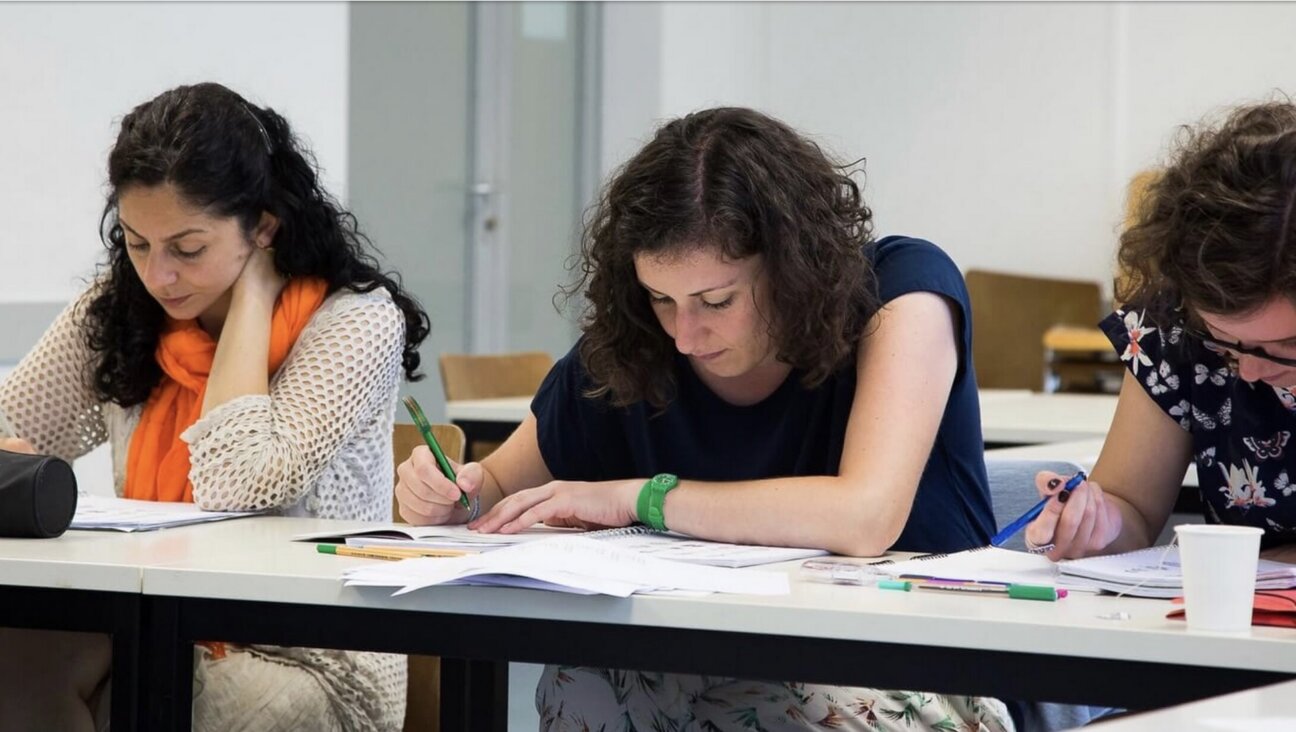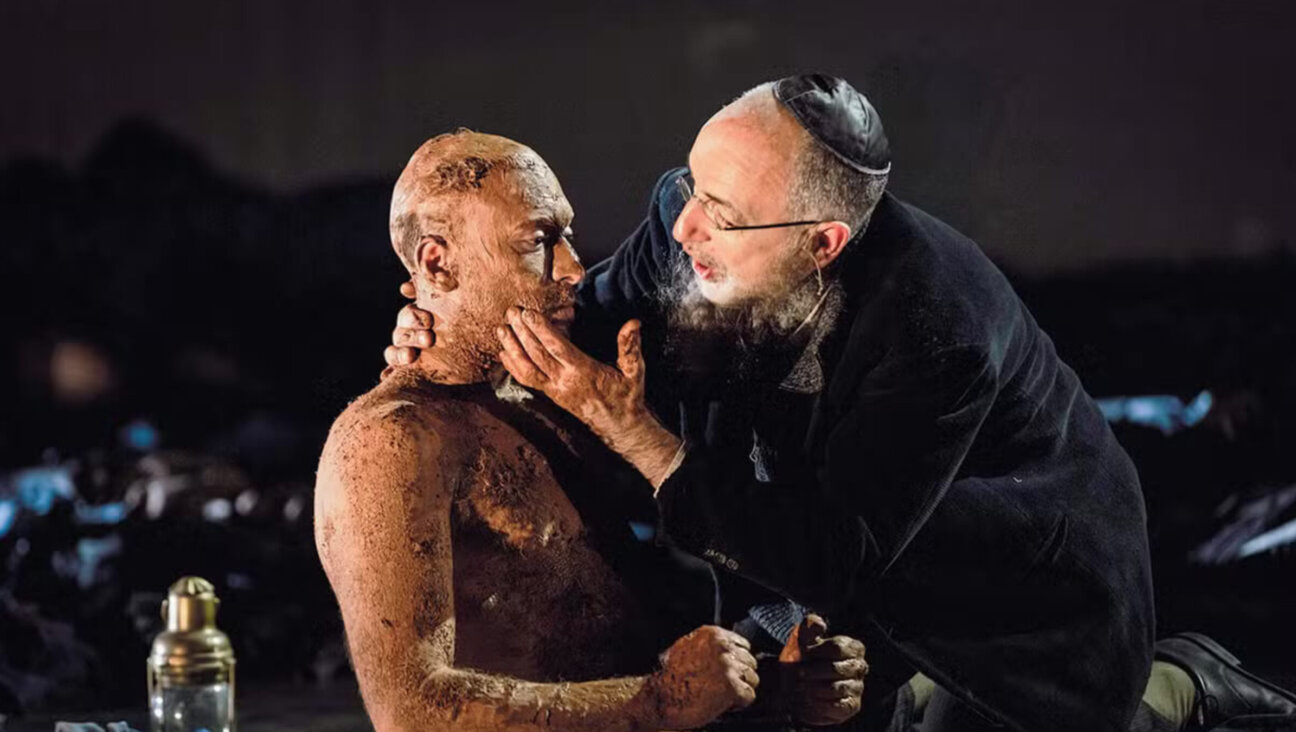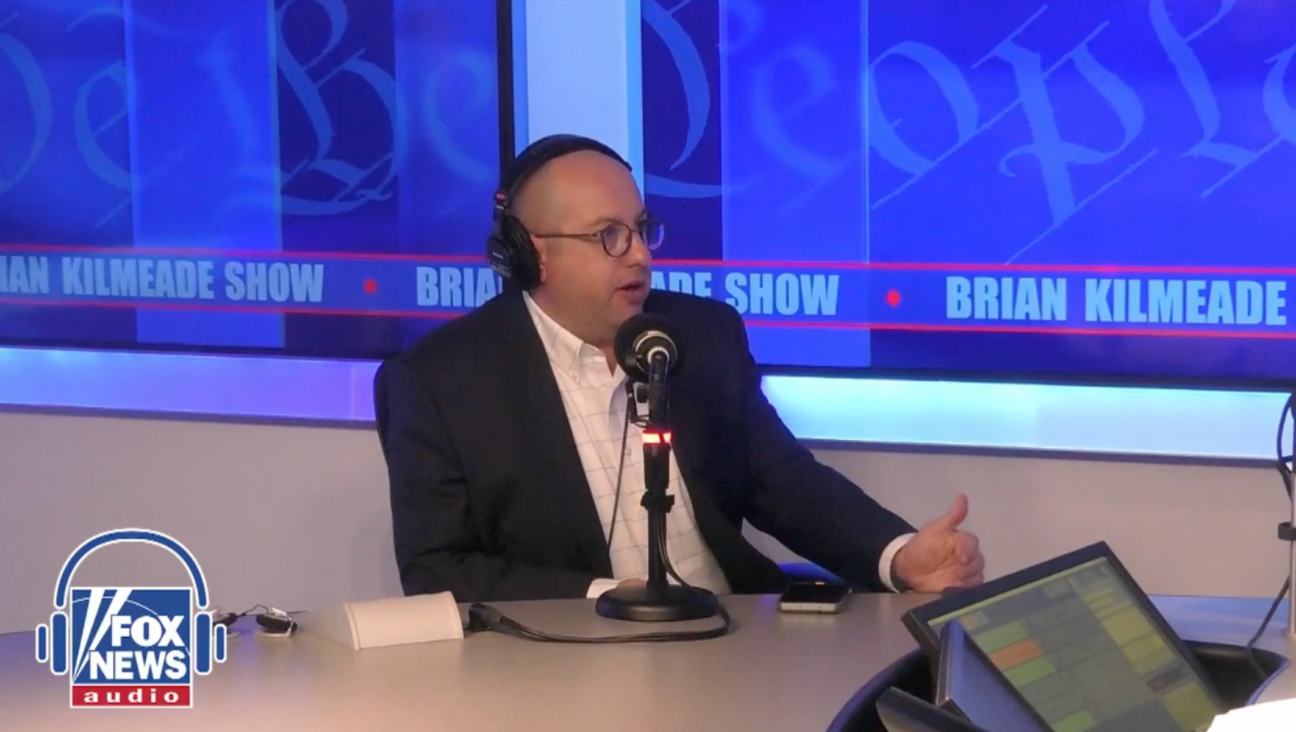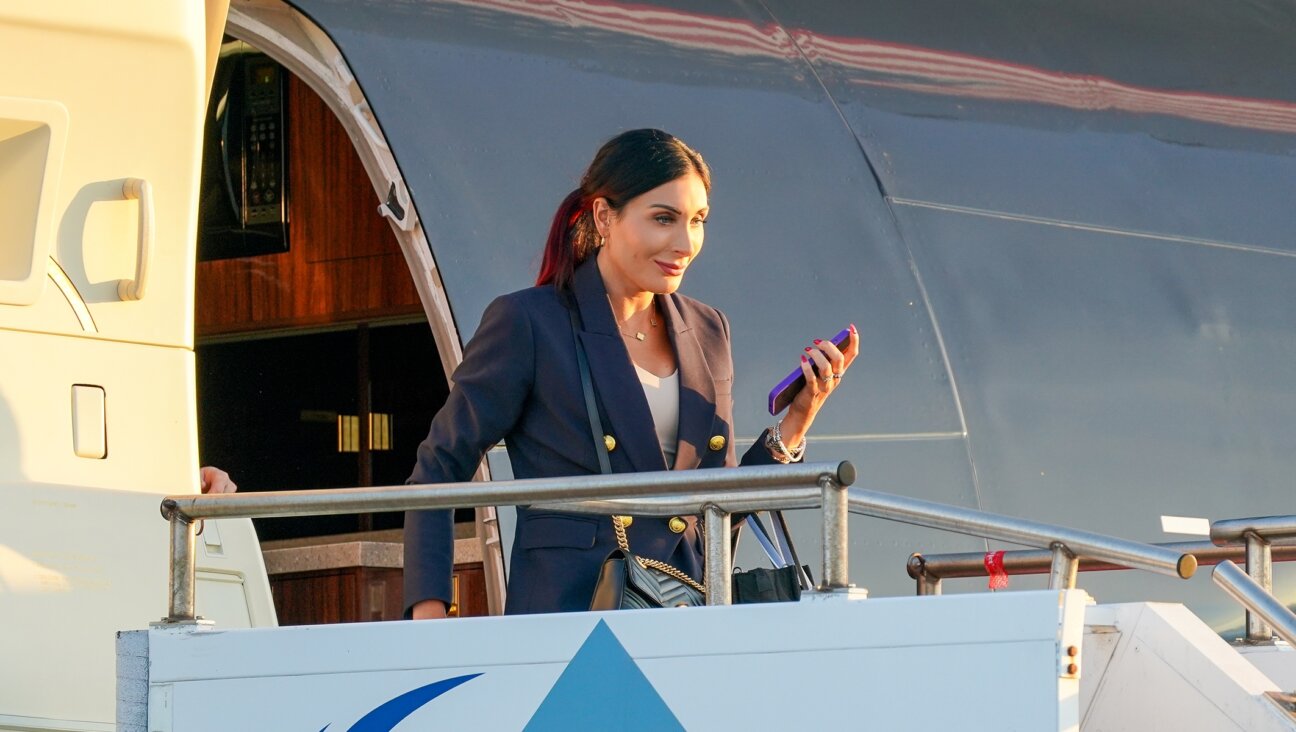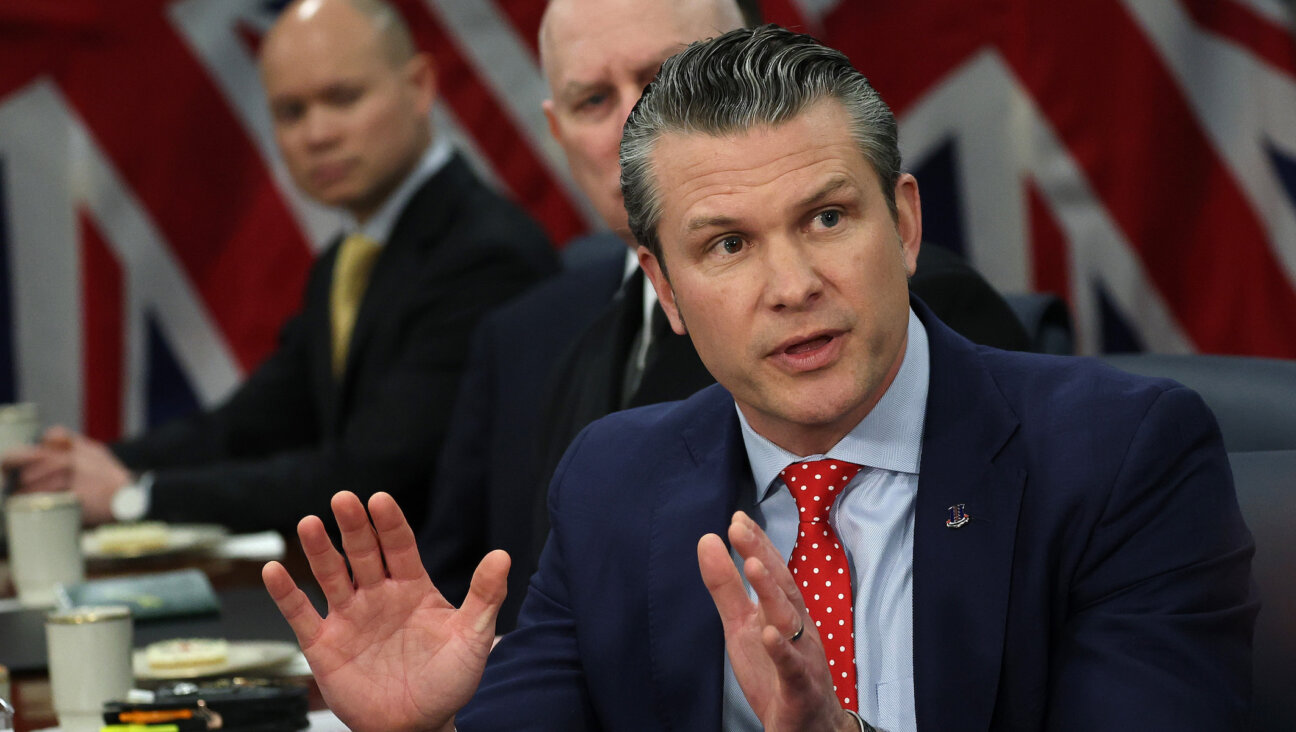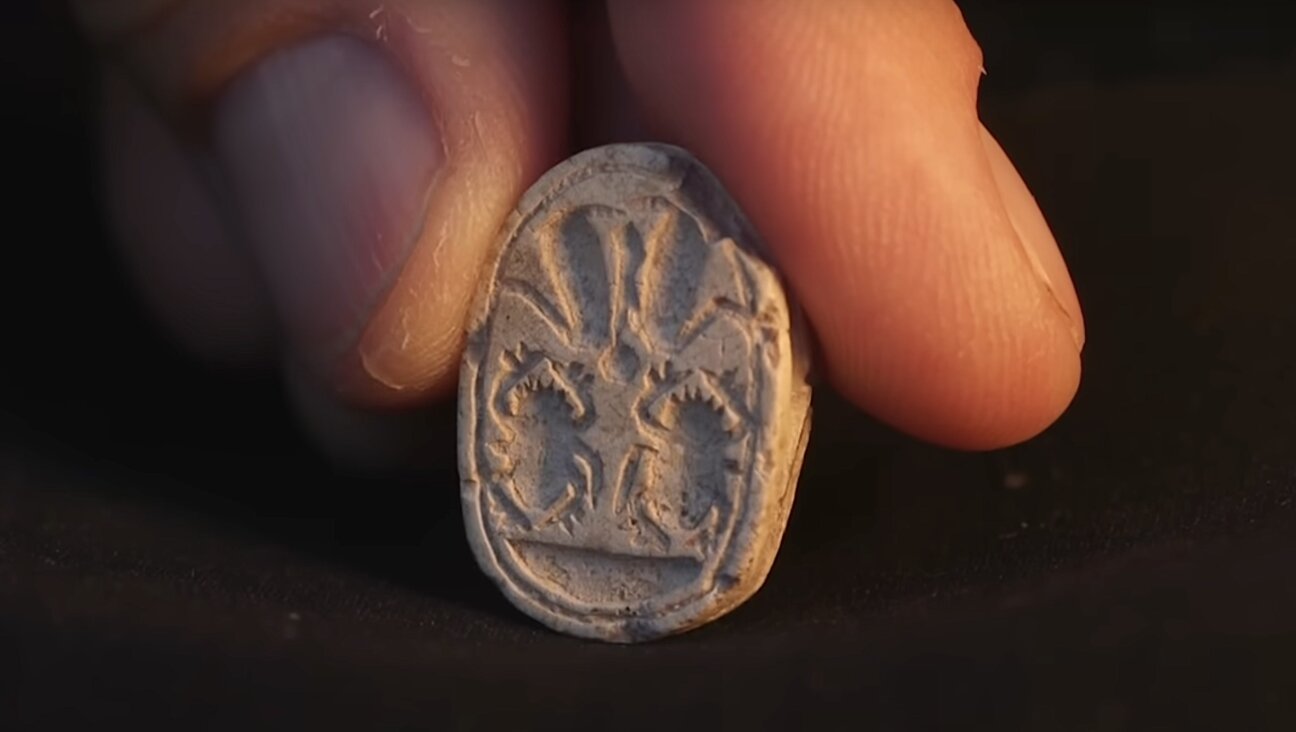What happened the first time I wore a yarmulke on the subway
I’m not religious, but since Oct. 7, I feel that the best way to combat Jew hatred is to act ‘more Jewish’
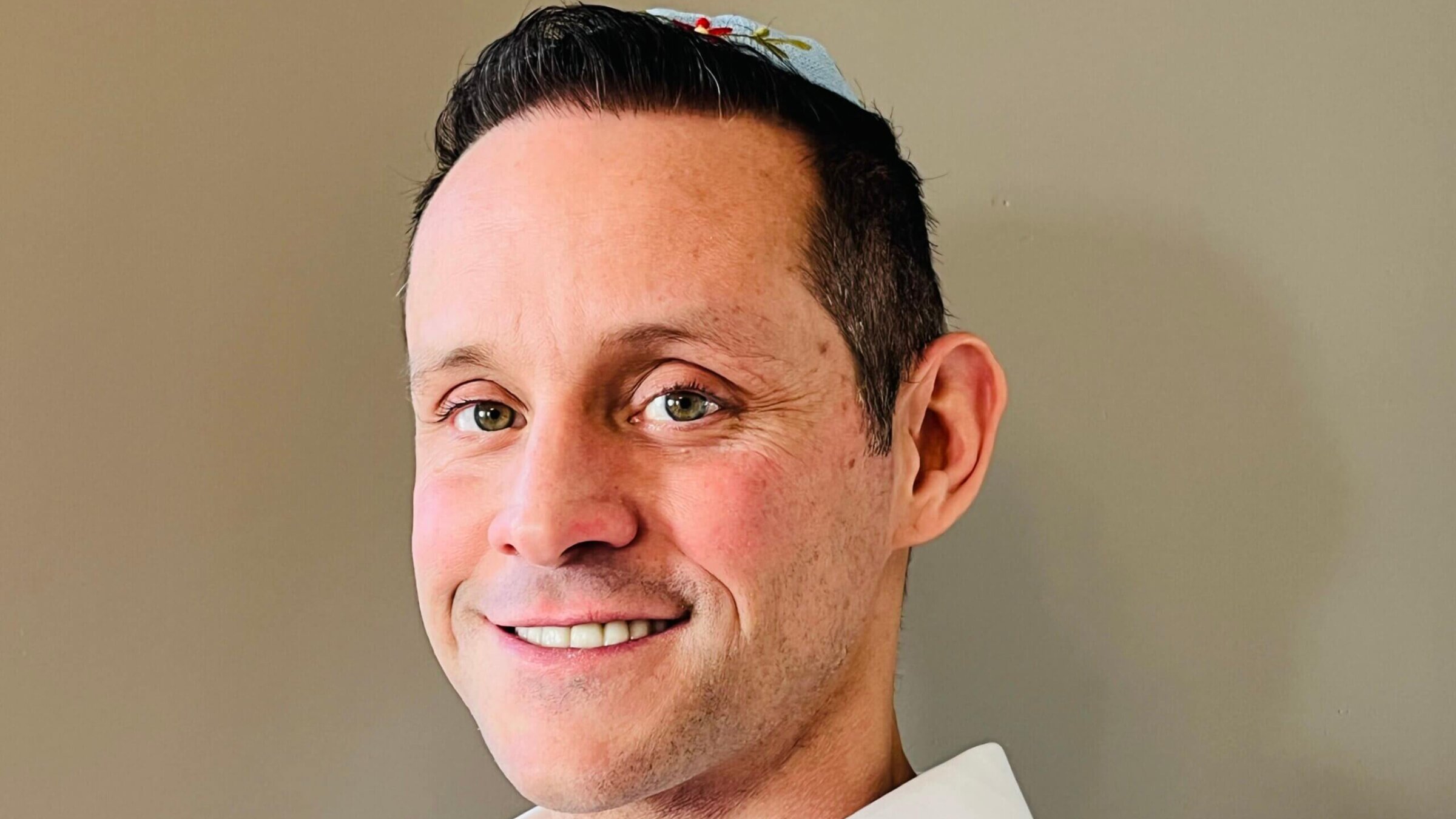
Photo by the Forward
This article was originally published in Yiddish.
I’m not a religious Jew. I don’t keep Shabbos. I don’t keep kosher. Although I avoid eating pork, I do occasionally enjoy a shrimp or two. And when I’m feeling really indulgent, I dine on lobster.
So I don’t usually wear a yarmulke in public. In fact, the only time I wear one at all is if I’m on the way to a synagogue service. It’s always the same one: a pale blue-flowered kippah that I received several years ago at the bat-mitzvah celebration of a girl I didn’t even know in Miami Beach.
But since Oct. 7 and the sudden rise of antisemitic attacks, I’ve been hearing a lot about Jews needing to avoid wearing Jewish symbols in public, and that it might be best to leave them home.
I see it differently. Last fall, I was at a Friday night service at Congregation Beit Simchat Torah in Manhattan, where Rabbi Sharon Kleinbaum told us, a group of LGBTQ+ attendees, that the best way to combat Jew hatred is to “act more Jewish.”
I liked what she said. So I decided to occasionally wear my yarmulke in public, while at the same time I’d make sure that I related to all strangers in a warm, friendly way. This would be my way of serving as a good ambassador for the Jewish people.
One Friday afternoon in December, I decided to attend another Friday night service at CBST. It takes about an hour to get from my home in Riverdale to Beth Simchat Torah since I need to take a bus to get to the subway.
So here I was waiting for the bus in the bitter cold, together with a group of Spanish-speaking Dominicans, my neighbors. In north Riverdale, if you aren’t Jewish or Irish, you’re Dominican. The heated bus finally arrived and we all took a seat.
Suddenly a woman with a long skirt stood up and started yelling in Spanish about Jesus, condemning the way people celebrate Christmas today, next to tables filled with alcoholic drinks. “It’s like celebrating sin!” she cried. She began moving down the aisle, handing pamphlets out to the passengers.
When she came to me, she gave me a pamphlet, too. I pointed to my yarmulke and said: “Soy judío.” (“I’m Jewish.”) She drew her face closer to mine and whispered: “The Jews can atone for their sins too and get saved by our Lord Jesus.” I shook my head but didn’t say anything and she went on to the passenger next to me.
Suddenly, she began ranting about the Jews’ refusal to accept Jesus and how they sent him off to get crucified. “But God is compassionate!” she cried. “God loves all creatures, all of humanity — even the Jews! It’s never too late to atone and accept Jesus our Savior.”
I wasn’t offended because she obviously believed she was carrying out God’s work. I get it; I grew up in Mississippi, so I’ve heard many sermons like this one.
The bus arrived at the subway station. As I sat down on the #1 train, I took out a copy of the book The Radical I. L. Peretz and the Rise of Jewish Socialism.
Suddenly, a voice said “Shabbat shalom.” I raised my head and noticed the passenger next to me, a young dark-haired man with a beard. He was wearing a long gray coat, a black scarf and newly polished shoes. Obviously, he had noticed my yarmulke.
“Is that the way to pronounce it? ‘Shabbat shalom’?” he asked.
“Well, I myself say gut shabbos, but yes, you said it right.”
He smiled warmly. Noticing a slight accent, I asked him where he was from.
“Saudi Arabia,” he said. There was an awkward silence. The situation between Israel and the Palestinians came to mind and I thought, where is this conversation headed? What should I say?
After a long pause, he said: “You should visit Saudi Arabia. It’s a beautiful country. Although due to the situation now it’s probably not the best time to visit.”
“It’s an expensive trip too,” I replied. “I’ve never even been to Israel.”
“Really? But don’t all Jews need to visit Israel?”
Was he thinking about the Birthright trips? I thought. Or maybe he thought Jews made pilgrimages to Israel like Muslims did to their holy cities, Mecca and Medina?
“No,” I said. “Whoever wants to can visit but it isn’t required. Besides, not all Jews feel a strong connection to Israel, even though many Jews do. But can a Jew actually visit Saudi Arabia?”
“Of course! There’s even a rabbi who lives there.”
“I’m really surprised,” I said. “Excuse me, what’s your name?”
“Saleh.”
“And mine is Moyshele.”
“Pleased to meet you,” he said and we shook hands.
Suddenly the door between the subway cars burst open and who do I see? The Spanish-speaking missionary with the long skirt! But now she was preaching in a softer voice. Apparently, all that yelling about Jesus and atonement exhausted her.
She moved from one passenger to the next and stopped when she came to me. She bent towards me, looking me in the eyes. “Jesus loves you,” she whispered with a smile, and went on to the next car.
Saleh and I continued our conversation. He told me that he’s been living in New York for three years and was studying chemistry. I told him I taught a language called Yiddish. “Did you ever hear of the language?” I asked skeptically.
“Yes, it’s a bit like German, right?”
“That’s right,” I said, surprised.
We touched on the war between Israel and the Palestinians. He said that what Hamas did was horrible. In Saudi Arabian television, he said, you hear a lot of rage against the Jews but he himself doesn’t share those views.
I said that what’s happening in Gaza is terrible too, and that the Israeli government is persecuting the Palestinians, but unfortunately, many people confuse the present Israeli government with Jews in general. “The Israeli government doesn’t represent all Jews,” I said.
Seeing how personal our talk was getting, I asked: “Where are you headed now?”
“I’m meeting up with an Albanian friend of mine. We’re going to a restaurant. How about you?”
Saleh seemed like an “enlightened” guy so I was curious to see his reaction when I told him the truth. “I’m going to a gay synagogue.”
“Is that allowed?” he asked, his eyes widening.
“Apparently, it is,” I smiled. “This synagogue has been around for 50 years.”
He asked if homosexuality was permitted according to the Jewish religion. I explained the difference between various Jewish denominations and that some Jews are more liberal than others. He mentioned the classic medieval Saudi poet, Abu Nuwas, whose poetry is taught in school. “Everyone knows that he was gay but no one mentions this,” he said.
The train arrived at Penn Station. “It’s been very nice speaking to you,” Saleh said. “I’ve never spoken to anyone in the subway about these topics, especially politics.”
“My first time too,” I said. “I’m glad you wished me ‘Shabbat shalom’!”
We said goodbye and he disappeared into the crowd. I’ll probably never see him again, especially in a big city like New York, I thought. Too bad he’ll never know what a deep impression he made on me.
Finally, I arrived at CBST. The service was lovely. As I left the synagogue afterwards and walked towards the corner, someone tapped me on the shoulder. It was one of the congregants, a short guy with a turned-up mustache.
“Excuse me,” he said. “Did you know that you’re still wearing your yarmulke?” he asked.
I smiled. “Yes, I know,” I said.
A message from our Publisher & CEO Rachel Fishman Feddersen

I hope you appreciated this article. Before you go, I’d like to ask you to please support the Forward’s award-winning, nonprofit journalism during this critical time.
At a time when other newsrooms are closing or cutting back, the Forward has removed its paywall and invested additional resources to report on the ground from Israel and around the U.S. on the impact of the war, rising antisemitism and polarized discourse.
Readers like you make it all possible. Support our work by becoming a Forward Member and connect with our journalism and your community.
— Rachel Fishman Feddersen, Publisher and CEO



